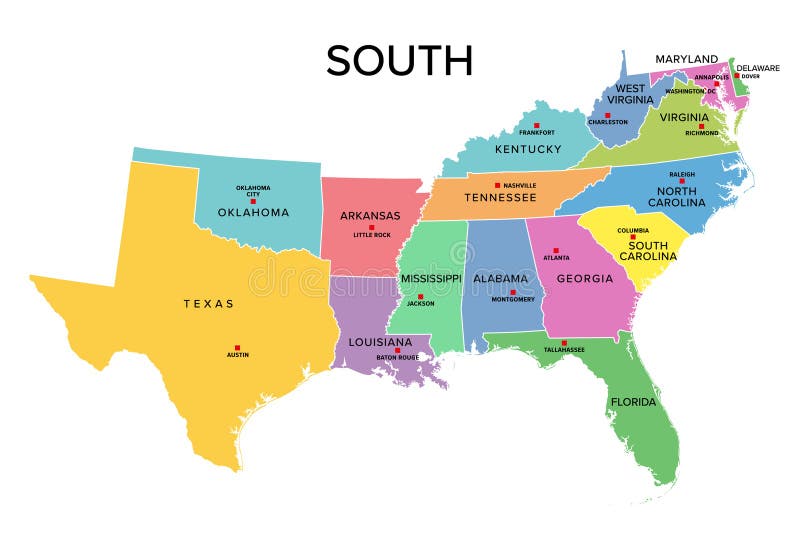
Why Economically Powerful Cities Are Not State Capitals? Two late financial working papers offer an original hypothesis—ggeology may be at fault. Specifically, capitals that are more detached from the remainder of the state or nation will generally be worse.
The main NBER paper, composed by Filipe R. Campante of Harvard Kennedy School and Quoc-Anh Do of Singapore The Executive College takes a gander at state capitals in the US and views that as "detached capital urban communities are powerfully connected with more noteworthy degrees of defilement.
Specifically, they measure a state's obscurity by taking a gander at the quantity of government convictions for public defilement somewhere in the range of 1976 and 2002. Incidentally, this relates sensibly well with an express capital's geographic distance from significant populace habitats.
Be that as it may, how could this be? There are two or three hypotheses here. The creators found that state capitals situated in distant regions will quite often get less paper and media inclusion. Additionally, citizen information about the goings-on in these disengaged statehouses will in general be lower. Furthermore, accordingly, citizen turnout for state races will in general be discouraged.

The creators look at two defilement outrages, one encompassing New York Senate Larger part pioneer Joseph Bruno, and one around previous House Speaker Salvatore DiMasi, in Massachusetts. The outrages appeared to be sensibly comparable.
Read Also: U.S. Economic Outlook and Housing Price Dynamics
However the Boston Globe and Boston Messenger covered the DiMasi story more intensely than the New York Times, New York Everyday News, and New York Post covered the Bruno story. Was that since Boston is a significant populace place while Albany is more remote? That is the hypothesis, at any rate.
Curiously, the creators likewise investigate one of the first reasonings for finding so many state capitals from populace focuses — which was the possibility that they could be more free of industry impact. It just so happens, this reasoning doesn't appear to hold up. States with secluded capitals really have more significant levels of cash in their missions.
Why economically powerful cities are not state capitals? In a different paper, Carmante, Do, and Bernardo V. Guimaraes track down a comparative example in capital urban communities all over the planet those that are more remote likewise will quite often be more bad.
Be that as it may, since it's harder to look at every one of the various nations of the world, a considerable lot of which are at ridiculously various transformative phases, the creators need to think of an alternate hypothesis to make sense of defilement here. Far off public capitals in non-industrial nations, they contend, are more secure from the danger of uprisings, which can go about as a limitation on defilement.
Thinking Washington D.C. in contrast with New York in the US. Accept Switzerland for instance and contrast Bern and Zurich or Geneva. Think about The Hague and Amsterdam in the Netherlands or Toronto and Ottawa in Canada. It appears to be that there is an example arising when we contrast a country's capital city and its primate city.
In various nations, the capital city isn't really the main city. We can call them optional capital urban areas, truth be told. However, these auxiliary capital urban communities don't lay on their political shrubs. They proactively endeavor toward reaping the monetary advantages of being a political focus, yet in various ways.
Business pioneers and policymakers in these urban areas are attempting to shape a one of a kind territorial development framework and they are taking part in locational strategies to not just advance their area and reinforce their monetary seriousness, yet in addition to guarantee their status in the public metropolitan framework.
For the beyond five years, we have been participated in an interdisciplinary examination project for which we inspected the political economy of capital urban areas. We analyzed the territorial development frameworks and locational arrangements of four optional capital urban communities (Bern, Ottawa, The Hague, Washington D.C.).

The four urban communities were picked on the grounds that they address auxiliary capital urban areas with regards to majority rule political frameworks and are situated with western, industrialized countries.
Our review based on an interdisciplinary methodology that attracts on speculations and strategies monetary topography and political theory. From the monetary topography viewpoint, we investigated how the four capital urban areas capability as RIS driven by open acquisition exercises that connect with people in general and confidential areas.
Read Also: Economic Forecast for the US Economy
The political theory point of view analyzed the locational strategies that are formed in these four capital urban communities. Being implanted through field work in each of the four capitals, we had the option to direct 179 meetings, break down information on open obtainment, and analyze itemized quantitative and subjective information about the capitals' monetary and authoritative designs.
Why economically powerful cities are not state capitals? The economy of auxiliary capital urban communities is very unique and advantages from the way that public states across the different public settings progressively re-appropriate administrations to the confidential area. The public acquirement process is presently the fundamental driver of capital city economies.
Entertainers, for example, firms, industry affiliations, colleges are significant players in this capital city local development framework. Firms, for instance, benefit from being situated in closeness to public government offices with whom they work with. Contracting firms likewise foster one of a kind systems by which they draw in with the public area to win more agreements.
For instance, they use different methods of commitment in discoursed with public government delegates when an agreement. They likewise help out rivals to frame winning groups.
However, these optional capital city economies are many times at risk for becoming gotten into their administration situated improvement ways. Every one of the four urban communities experience such lock-ins and are drawing in with strategies to keep away from such circumstances.
Locational strategies are instruments to fortify the seriousness of optional capital urban communities in interurban rivalry. The locational strategy plans in every one of the four capital urban communities share this reasoning to be cutthroat, yet their definite setup contrast on the grounds that locational arrangements are affected by place-based monetary and institutional requirements and potential outcomes.
For instance, all auxiliary capital urban communities are dynamic in drafting advancement approaches, yet the genuine strategies that are executed on the ground are lined up with the qualities of their local development framework. Subsequently, locational strategy plans are place-explicit, however they all offer the inclination to situate the capital as a "business city" close by its political capability as a "administration city".
The book is pertinent as interurban rivalry is expanding and the potential outcomes to receive rewards from government contracting are arising. This implies that optional capital urban communities should know about how their remarkable economies work and how they can uphold this financial framework with brilliant locational arrangements.
As to in monetary geology, the accentuation on open acquisition and related advancement elements is somewhat new and should be grown additionally given that the public area can add to information overflows and provincial improvement in new ways.
Political theory specialists might be fascinating in this work since it maps locational strategies in a definite and enveloping way and we show how place-based monetary and political foundations are significant in making sense of the plan of such strategies.